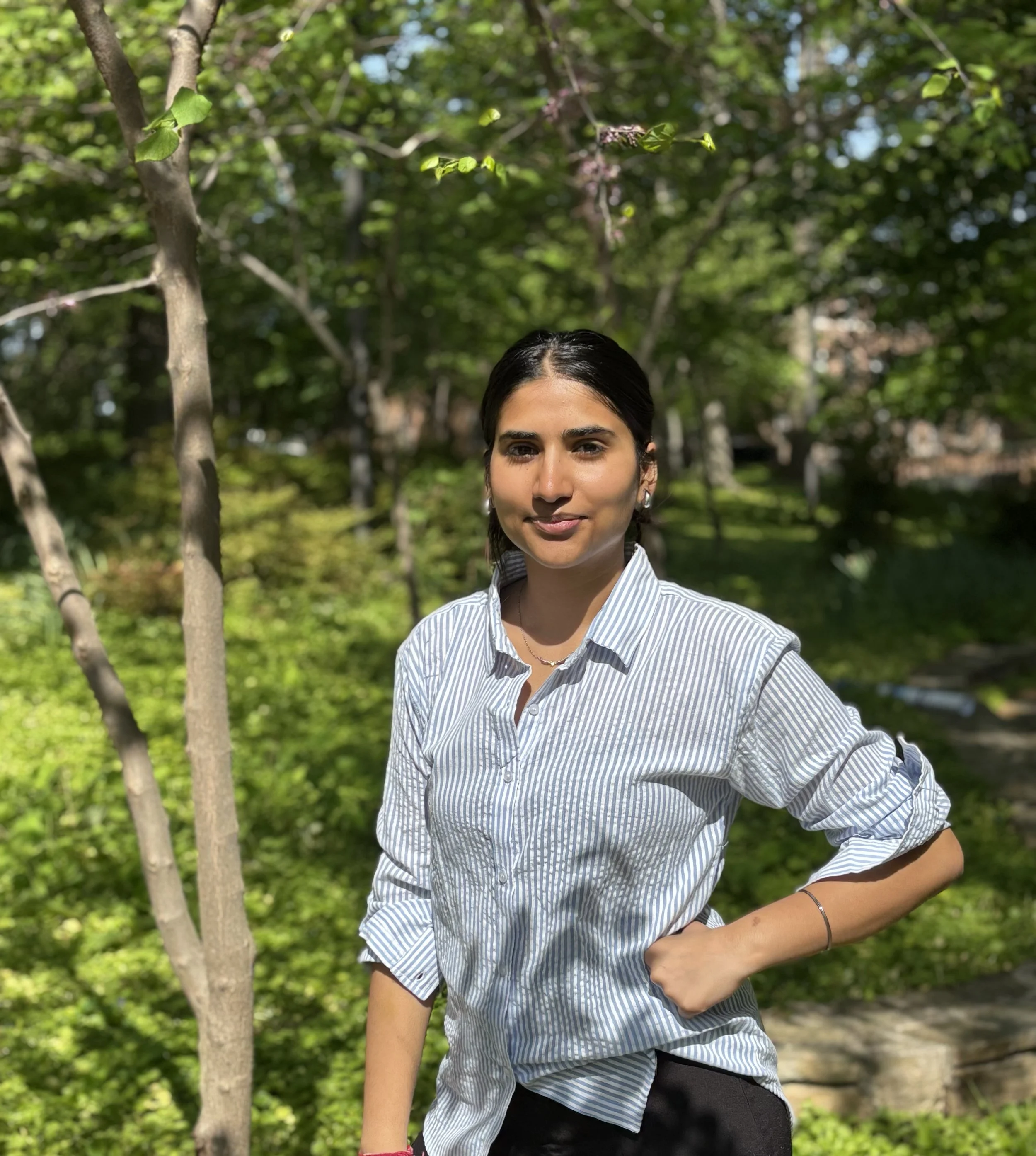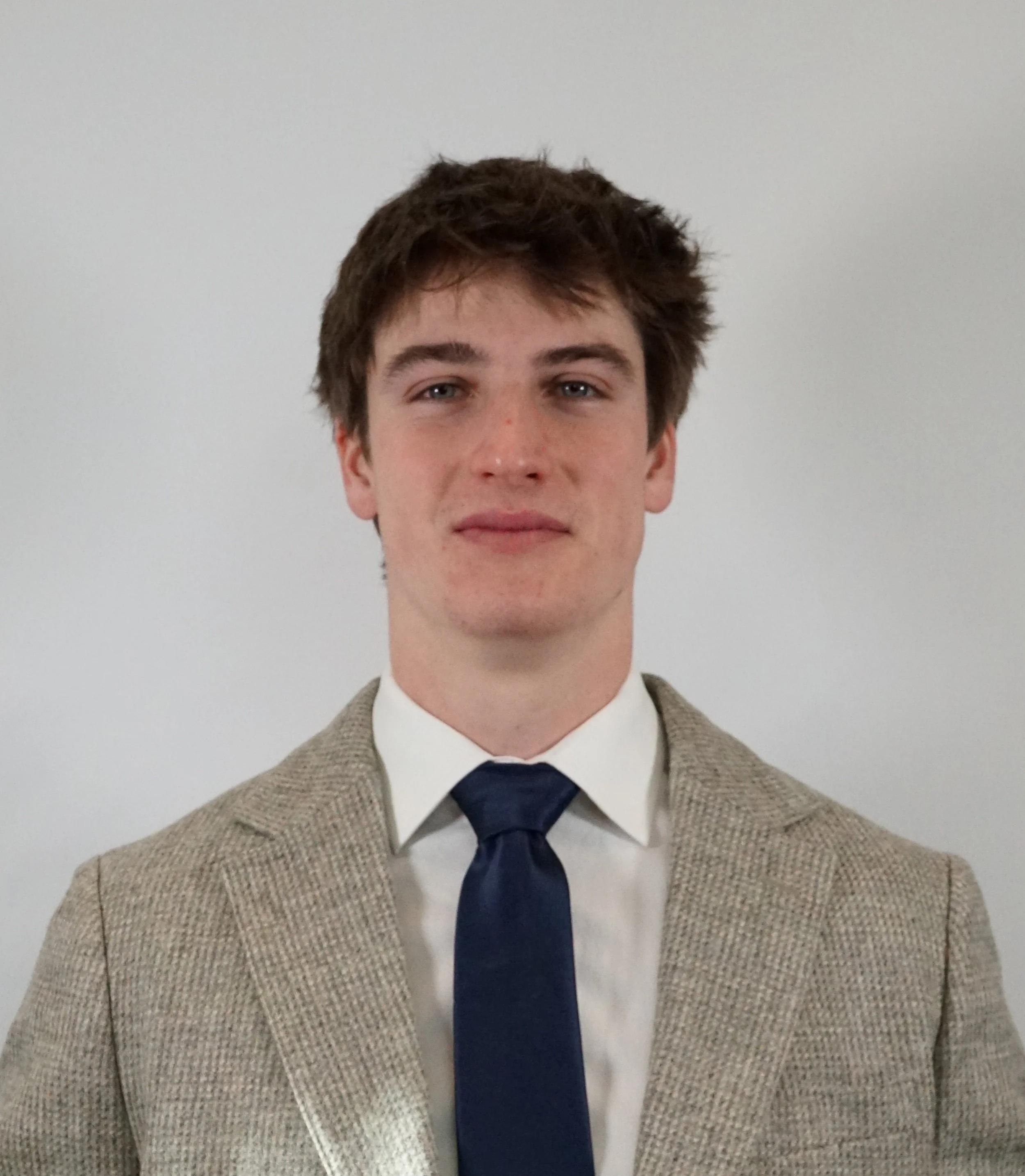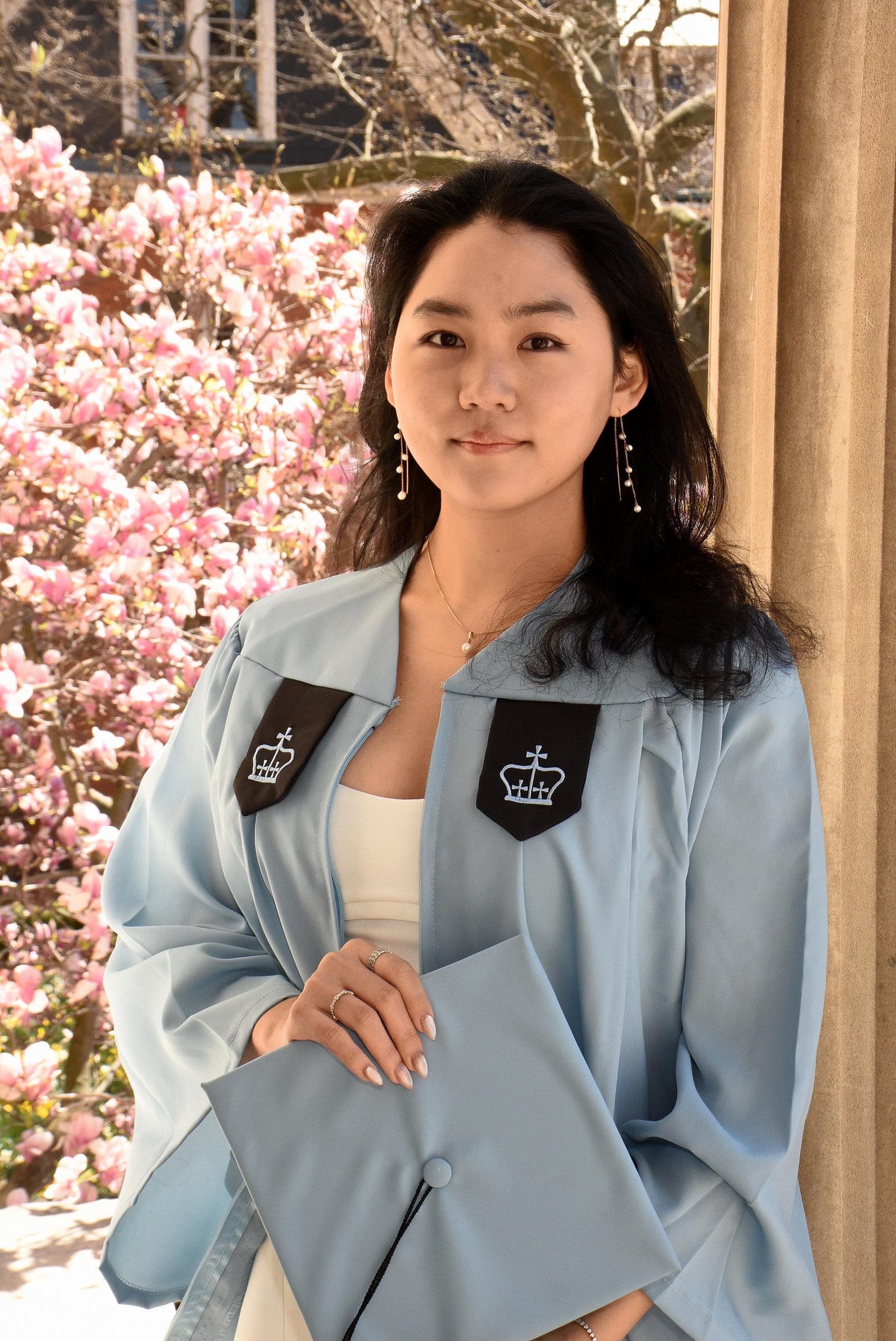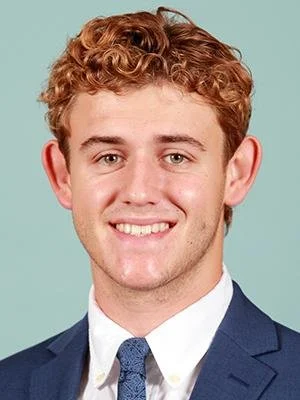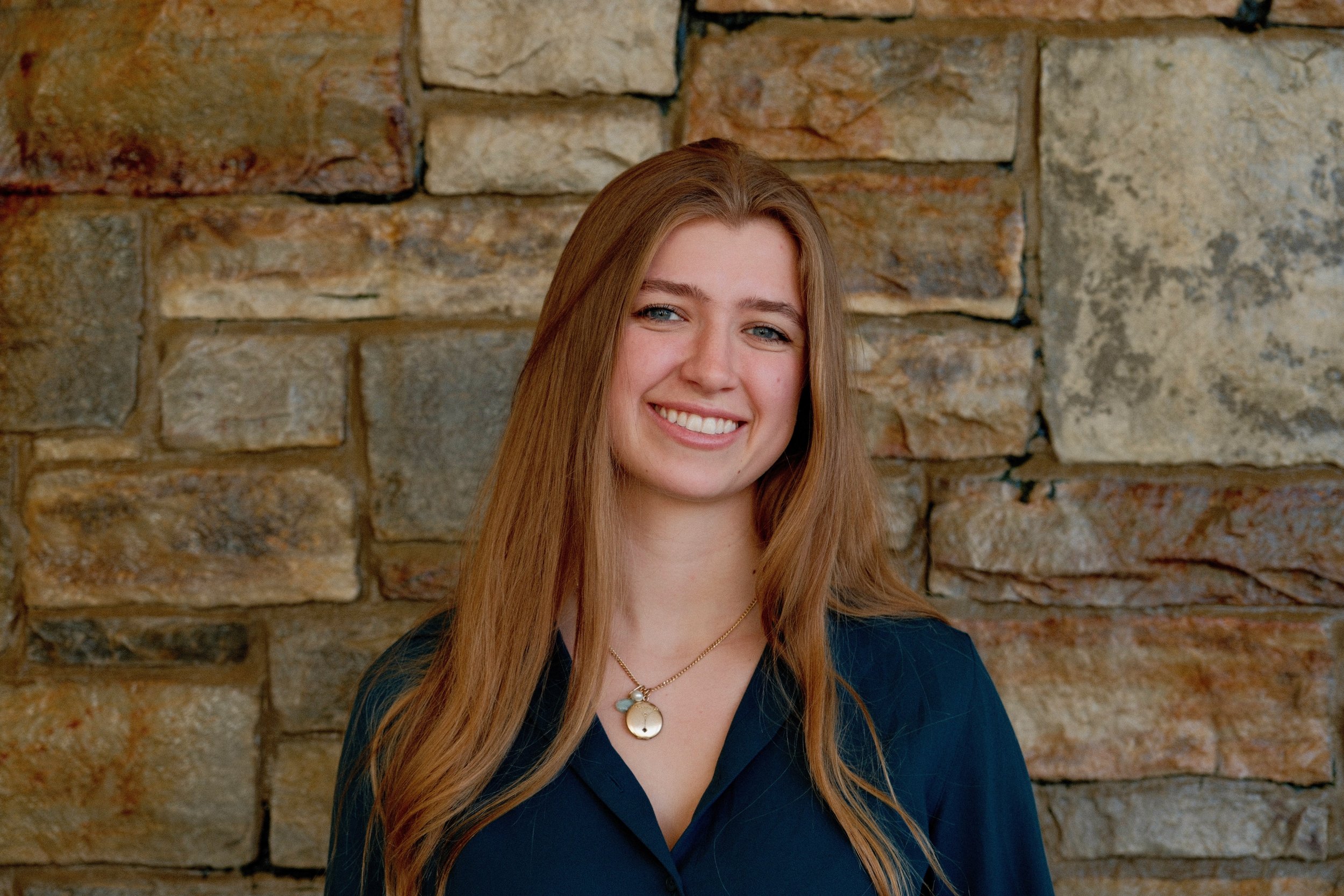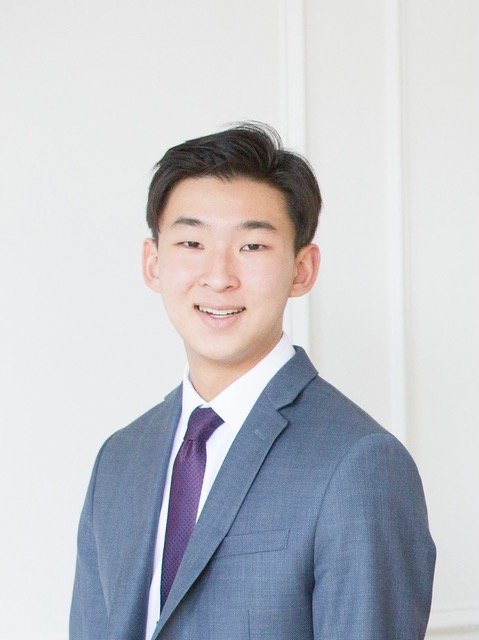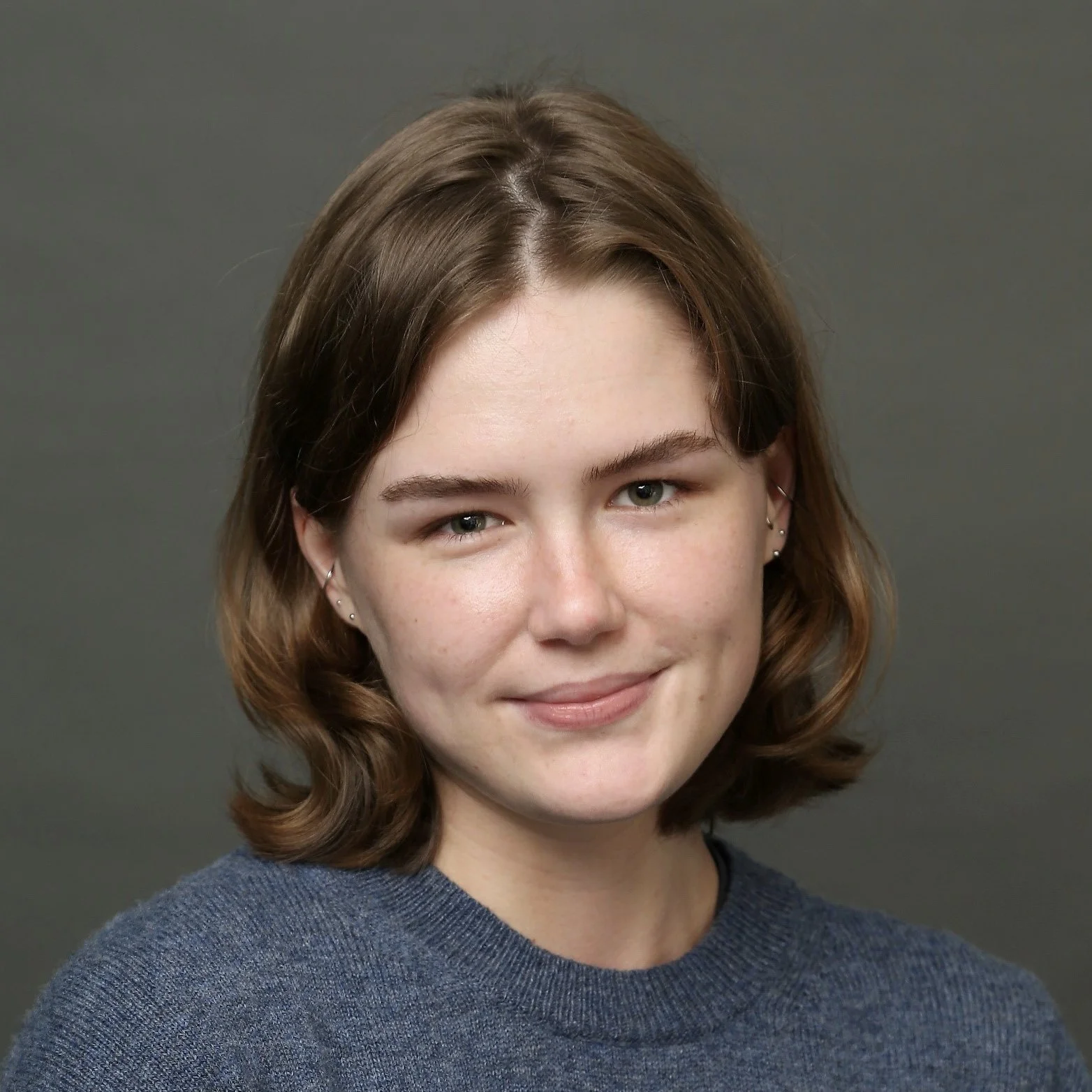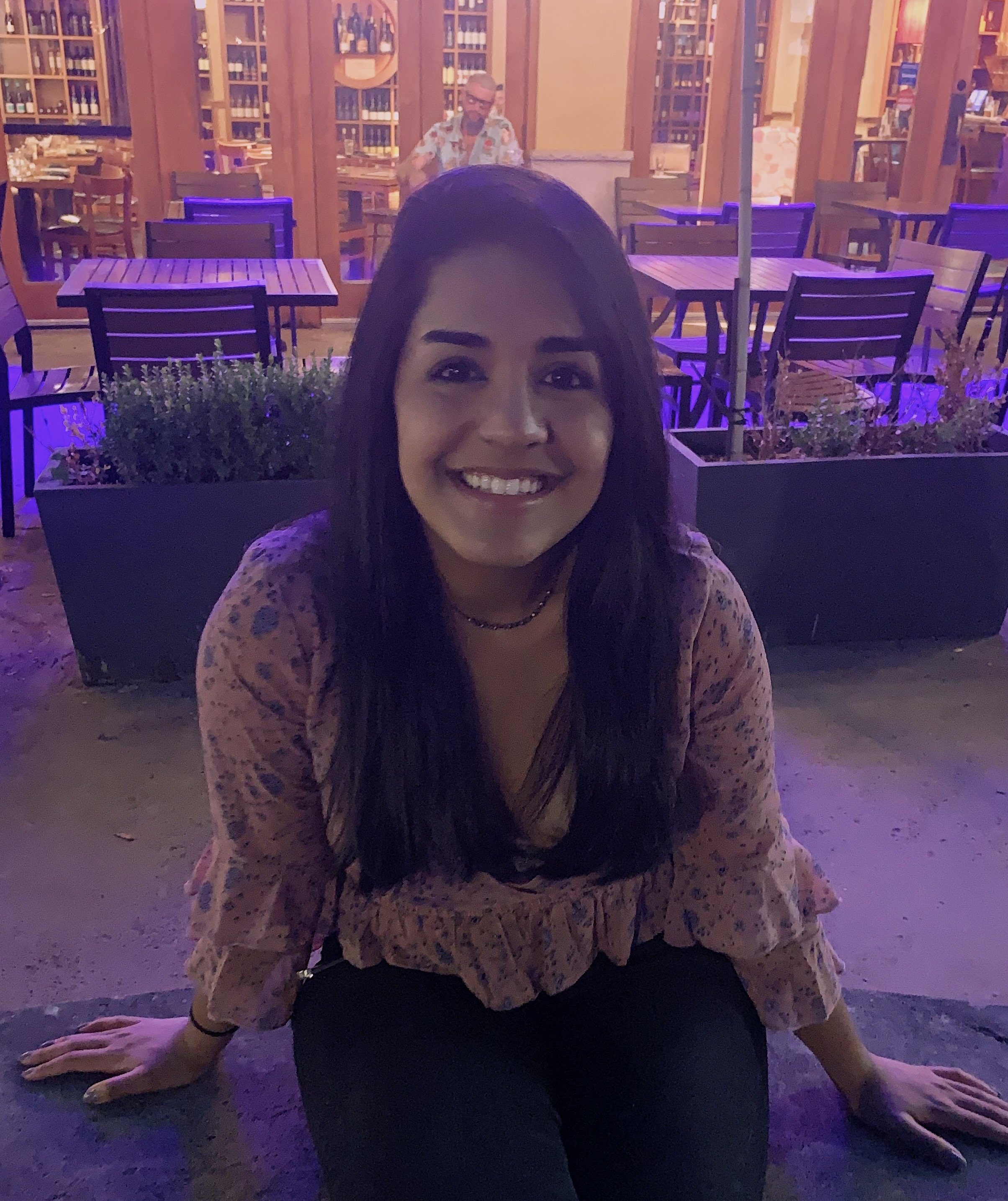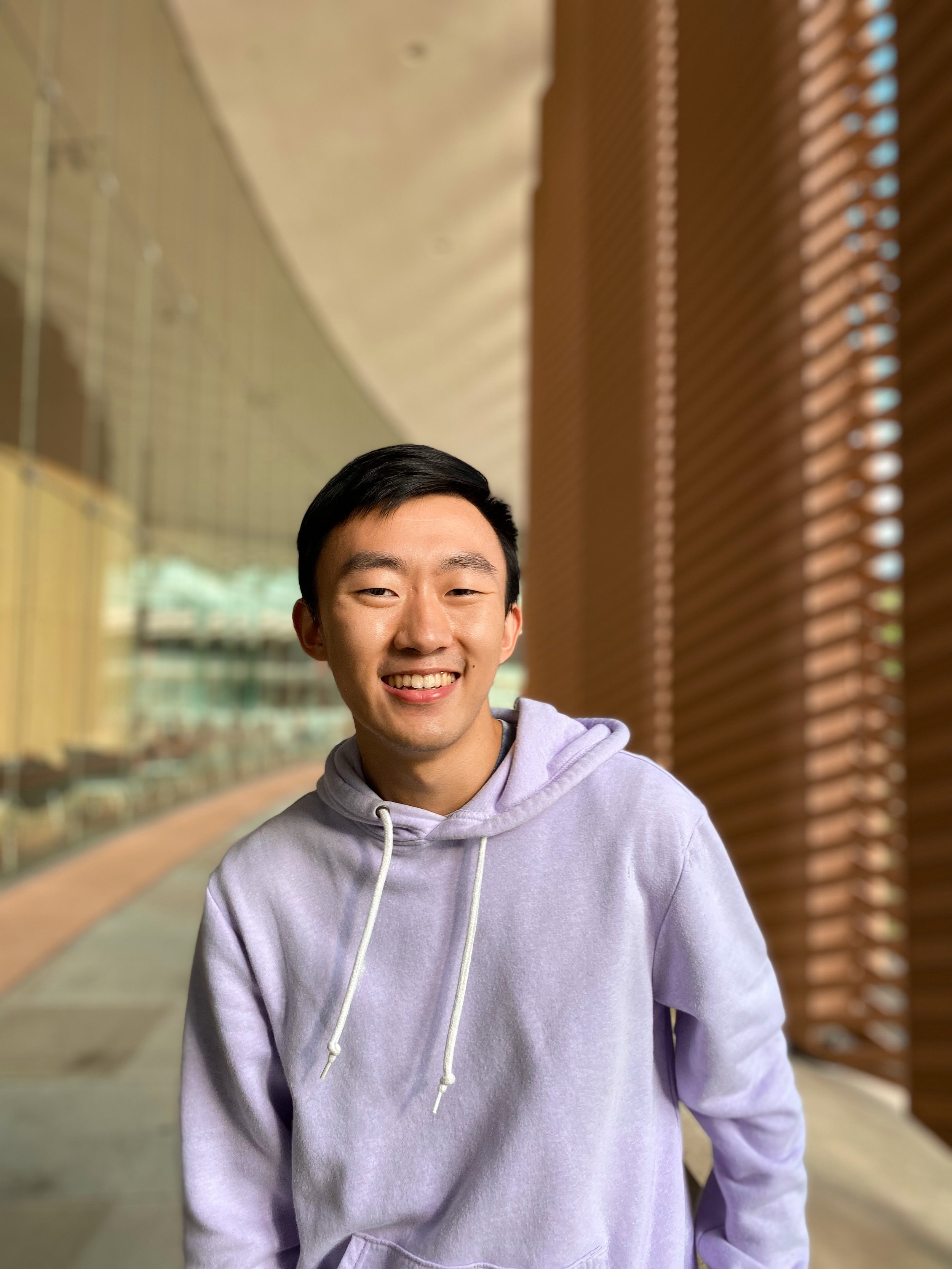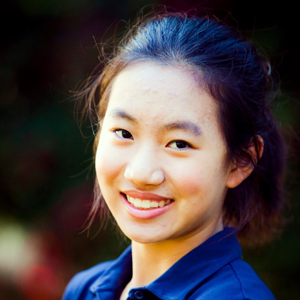Past Research Trainees
2025 Research Trainees
sukriti, john hopkins university
This summer, I have the pleasure of working with Dr. Yohannes Tesfaigzi on a project investigating how pollution-linked genetic variation modulates gene expression in the human airway epithelial cells. I am using datasets created by the lab as well as publicly available genetic expression databases like GTEx to gain insights into the effects of these variations across multiple organ systems. Integrating these findings with proteomics data is also something I will be working on. I recently graduated from Johns Hopkins University with a BS. In Applied Mathematics & Statistics and Molecular & Cellular Biology. I am headed back to JHU to complete my combined masters in data science this fall.
william, colby college
This summer, I am working with Dr. Chanu Rhee and his team at the Center for Sepsis Epidemiology and Prevention Studies, investigating how variations in the CDC’s Adult Sepsis Event (ASE) definition impact estimates of community-onset sepsis incidence. Developed by Dr. Rhee's team, the ASE definition applies standardized criteria to electronic health record data to enable objective, nationwide sepsis surveillance. By analyzing how definitional changes affect incidence trends, this work will support enhancements in the accuracy and consistency of sepsis monitoring. In the fall, I will begin my senior year at Colby College where I am majoring in Computational Biology.
trisha, swarthmore college
This summer, I have the pleasure of working under Dr. Marie McDonnell in the Division of Endocrinology to study patterns of emergency department (ED) use among patients with diabetes. As part of this work, I am analyzing patient data from the Emergency Department Diabetes Rapid-referral Program (EDRP), which connects ED patients with urgent diabetes needs to specialty care within 24 hours of discharge. My work involves abstracting clinical and demographic data from Epic and using Python to identify trends in follow-up rates, referral success, and contributing factors, such as mental health comorbidities, that may contribute to repeat ED visits. In doing so, we aim to better understand why certain patients, particularly “superfrequent” ED users, do not benefit from rapid-referral efforts. I recently graduated from Swarthmore College with a degree in Biology and Latin.
somin, columbia university
This summer, I am working with Dr. Alexander Turchin in the Endocrinology division on a project to identify temporal data patterns predictive of adverse outcomes in patients with diabetes. My role will be centered on manipulating an inpatient EHR dataset with SQL and python including but not limited to cleaning and aggregating multi-year admissions, medication, and lab table to prepare features for downstream predictive modeling. Although this is my first intensive use of SQL after several years in Python and R, the program’s DataCamp resources have accelerated my mastery of database design, query optimization, and performance tuning. We will apply both attention-based recurrent neural networks and temporal convolutional networks in explainable AI frameworks, alongside traditional logistic regression in Python, to identify temporal patterns predictive of glycemic control failure and 30-day hospital readmission in diabetic inpatients. In the fall, I will be joining the National Institute of Diabetes and Digestive and Kidney Diseases (NIDDK) as a post-baccalaureate research trainee.
Samuel, university of pennsylvania
This summer, I had the opportunity to work with Dr. Emily Ruiz in the Mohs and Dermatologic Surgery department. My project investigated the efficacy of Mohs Micrographic Surgery for treating cutaneous squamous cell carcinoma of the nail unit. The variables we considered included local recurrence rates, immunosuppression, and the use of nodal imaging. I analyzed the patients' charts, taking clinical data and compiling it into RedCAP. I will then contribute to the data analysis effort in the latter half of the summer. This fall, I will be entering my senior year at the University of Pennsylvania, where I study Neuroscience and Health Care Management.
maria, harvard university
This summer, I am working under Dr. Kei Ouchi at the Department of Emergency Medicine at Brigham and Women’s hospital. I’ll be contributing to three research projects focused on improving the quality of patient care in the emergency department (ED) – the first project investigates the feasibility of using therapeutic robots to reduce stress in the ED, the second project tests out a value-based framework for clinicians to hold advance care-planning conversations with patients, and the third project explores how ED patients interact with an AI voice assistant when having conversations about goals for future care. As part of these projects, I’m assisting with pre-screening and enrolling patients, conducting remote surveys, and abstracting data through Epic. I’m a recent graduate from Harvard College, where I studied Bioengineering (S.B.) and minored in Global Health and Health Policy. Next year, I will be doing research at National University of Singapore on a fellowship, and I plan to attend medical school in the fall of 2027.
Malia, middlebury college
This summer, I am working under Dr. Christopher Baugh in the Department of Emergency Medicine at Brigham and Women's Hospital. My project focuses on observational medicine and consists of a scoping literature review on Emergency Department Observation Unit (EDOU) protocols. Through this project, we aim to understand which protocols have been studied, identify gaps in the current research, and highlight areas that need further investigation. I am using Covidence to screen thousands of articles and extract key data points such as patient outcomes, length of stay, and protocol effectiveness. This work will help inform future research directions and support improvements in how EDOUs are used to deliver efficient, high-quality patient care. In the fall, I will be wrapping up my final semester at Middlebury College, where I'm pursuing a degree in Neuroscience
Justin, brown university
I am a rising senior at Brown University studying Biomedical Informatics. This summer, I am working with the Thrombosis Research Group under the supervision of Dr. Gregory Piazza. As part of a team conducting a one-year follow-up study on outcomes in high-risk patients with provoked venous thromboembolism (VTE), I am assisting with data collection for individuals previously enrolled in the High-Risk Patients with Provoked Venous Thromboembolism (HI-PRO) randomized controlled trial and contributing to the analysis of whether low-dose apixaban reduces the risk of recurrent VTE.
Ella, MIT
This summer, I am working in the Golby Lab for Image-Guided Neurosurgery with Dr. Golby and Dr. O’Donnell. Here, I am researching the superficial white matter (SWM) in the brain. The SWM is an invisible network beneath the cortical surface that is essential to local communication within the brain. Although crucial to neurological function, the SWM is not well understood. Using advanced imaging and computational techniques, I will be analyzing SWM anatomy to understand how it interacts with nearby cortical folding patterns. Then, I will simulate approaches to tumor resection to assess how damage to the SWM can be minimized. By integrating a deeper understanding of SWM structure into neurosurgical planning, we aim to reduce the risk of disrupting critical SWM in the operating room, leading to improved clinical outcomes and fewer postoperative neurological deficits. In the fall, I will be returning to MIT, where I received a BS in Computer Science and Neuroscience, to pursue an MEng.
aunita, university of arizona
This summer, I have the pleasure of working with Dr. Theodora Pappa in the Oncology and Endocrinology Division. Our research aims to characterize the metabolomic landscape of papillary thyroid carcinoma by inferring metabolite abundances from RNA-seq data using a machine learning model trained on paired transcriptomic and metabolomic datasets. I apply multivariate and statistical methods to identify metabolic signatures associated with tumor subtype, driver mutations, and clinical risk. The goal is to better understand metabolic pathways that may inform personalized approaches to thyroid cancer care. I recently graduated from the University of Arizona with a Bachelor of Science in Bioinformatics.
Anika, vanderbilt university
This summer I had the opportunity to work with Dr. Clara Park in the Division of Breast Surgery at Brigham and Women’s Hospital to help develop an AI-powered intake assistant for new patients eligible for breast surgery. The goal of this project is to streamline referral workflows and reduce delays in patient access to care. We are building the tool on the Azure Foundry platform, and I hope to contribute to the prompt engineering process to improve model performance and clinical usability. I am a rising senior at Vanderbilt University, where I am studying Health Policies and Economies and Data Science and I hope to pursue a career in medicine.
2024 Research Trainees
joshua, university of chicago
This summer, I had the opportunity to work with Dr. Clara Park in the Division of Breast Surgery to investigate specimen labeling and orientation practices in oncoplastic breast surgery. I abstracted chart information from patients who received this kind of surgery to determine how use of the Breast Intraoperative Oncoplastic (BIO) Form changes specimen documentation and clinical practices post-surgery. In the fall, I will be entering my fourth year at the University of Chicago where I am studying Chemistry and Biochemistry.
sujay, middlebury college
This summer, I am working with Dr. Alexander Turchin in the endocrinology division of Brigham and Women's Hospital. I am contributing to the research project developing and testing explainable artificial intelligence methods to identify temporal data patterns in EHR that predict adverse outcomes in diabetic patients. We are using deep learning methods such as recurrent neural networks (RNN) and temporal convolutional networks (TCN) to analyze longitudinal EHR data and incorporate information obtained through NLP on medical documents to further improve the predictive model. In the fall, I will be going into my senior year at Middlebury College where I am double majoring in Molecular Biology/Biochemistry and Computer Science.
arusha, stanford university
I'm a rising senior at Stanford University, double majoring in Computer Science and Human Biology. This summer, I have the pleasure of working with Dr. Theodora Pappa in the Endocrinology department, with whom I'm researching how changes in frequency and dose of Radioactive Iodine after a total thyroidectomy has affected the clinical outcomes of Mass-Brigham patients with thyroid cancer. After building the dataset with patient records from 2010-2024, we aim to analyze the trends in RAI treatment and its effects on disease prognosis.
William, dartmouth college
This summer, This summer, I have the pleasure of working with PI Dr. Golby and Dr. Tie in the Golby Lab for Image-Guided Neurosurgery. I am focusing on applying fMRI to mitigate language loss in brain surgery patients using pre-surgical language mapping. Language area mapping is currently performed with complex semantic and phonological tasks, however, up to 50% of patients in the center have deficits that interfere with performance and invalidate the fMRI results. Task-free paradigms, such as resting-state and movie-watching, can be performed in patients with language deficits and are also easier to administer and require less provider training. I am analyzing the fMRI data using multivariate prediction analysis (MVPA) to identify regions of interest and PCA/ICA to determine functional connectivity. I am a rising senior at Dartmouth College studying neuroscience.
Edward, MIT
This summer, I worked under Dr. Emily Ruiz and closely with Dr. Nina Ran on a project investigating possible clinical connections between CLL (chronic lymphocytic leukemia) and SCC (squamous cell carcinoma). CLL patients often undergo chemical immunosuppression as a therapy to combat the overactivity of the immune system, but this creates new problems, leaving patients particularly vulnerable to other types of cancer, which is where SCC comes into play. As part of the data collection effort, I learned to read through patient charts, inputted procedure- and history-specific data into RedCAP, and will hopefully be contributing to data analysis and interpretation efforts in the future. This fall, I'll be starting my senior year at MIT, majoring in Biology with a minor in Science, Technology & Society.
Chloe, colby college
This summer I have the pleasure of working under Dr. Yohannes Tesfaigzi in the Pulmonary field to investigate polymorphisms of the lung and other tissues. Specifically I am compiling and overlapping genome wide association studies (GWAS) for chronic obstructive pulmonary disease, asthma, chronic sputum production, and eventually diseases within different organs, to determine any significant genes within shared loci. This data will be used in a colocalization to determine whether the variants are responsible for both GWAS and a quantitative trait locus analysis signals in loci. In the fall, I will be entering my senior year at Colby College where I am majoring Molecular Biology and Classics.
Katherine, MIT
This summer, I worked under Dr. Chris Baugh on a project investigating the efficacy of an emergency department hospice transition program. I performed patient chart abstractions and entered EPIC data into the RECAP database. In collaboration with Dr. Helen Knight I worked on a second project aimed at identifying existing inpatient hospice services and characterizing the communities they serve. I collected information on hundreds of hospice agencies using publicly available online sources and entered this data into the REDCAP database. I recently graduated from MIT with a Bachelor of Science in Chemistry and Biology.
Min, vanderbilt university
This summer, I have the pleasure of working with Dr. Kei Ouchi in the Department of Emergency Medicine to explore the effects of utilizing time-limited trials conversations on leading shared decision-making regarding initiating care in the ICU. As part of this project, I am assisting in identifying patients suitable for the study, following up with patients on their outcomes, and extracting data from patients' EPIC health records. I am a recent graduate of Vanderbilt University with majors in Biochemistry and Medicine, Health, and Society, and I will be attending medical school in the fall.
Paul, harvard university
I am working with Dr. Greg Piazza on a One-Year Follow-Up Study for High-Risk Patients with Provoked Venous Thromboembolism (VTE). While extended-duration anticoagulation medication has been understood as the main treatment for unprovoked VTE, there remains clinical equipoise regarding the optimal duration of treatment for provoked VTE. I am involved in the data collection of the follow-up study for patients previously enrolled in the HIgh-Risk Patients with PROvoked Venous Thromboembolism (HI-PRO) trial and will contribute to the analysis of whether low-dose apixaban mitigates recurrent VTE. I graduated from Harvard University with a degree in Chemistry and Physics (’24) and will hopefully be attending medical school in the fall of 2025.
2023 Research Trainees
nischal, colby college
During this internship, I had the incredible opportunity to work alongside Dr. Kei Ouchi and his lab team to enhance conversations about end-of-life care and advance care planning between patients with serious illnesses and their physicians. Using Clinical Regex, a natural language processing software, I filtered and annotated medical records to assess whether an ED intervention called EDGoal led to increased conversations about end-of-life care and advance care planning engagement with their physicians. In addition to data analysis, I assisted the team by performing weekly enrollment calls to recruit patients for the research study. This fall, I am starting my senior year on the pre-med track as a double major in music and biology, neuroscience!
Sindhuja, university of pennsylvania
This summer, I had the pleasure of working under PI Dr. Emily Ruiz on two different projects in the Mohs and Dermatologic Surgery department. My first project entailed looking at the incidence of cutaneous skin cancer in immunosuppressed patients in order to quantify risk and provide disease-specific recommendations. My second project focused on the impact of Tranexamic Acid (TXA) on bleeding complications in Mohs Micrographic Surgery. Manuscripts will be submitted for both projects following completion. This fall, I will also begin my final year at the University of Pennsylvania studying Neuroscience and Health Care Management.
emma, northwestern university
This summer, I was paired with Dr. Alexander Turchin in the Endocrinology department. With Dr. Turchin, I am working on the Canary project, an NLP tool designed to help clinicians and medical researchers extract information from unstructured EHR data. Specifically, I am testing whether implementing topic segmentation improves the performance of the Canary NLP tool. Also, I am interpreting Python code for a BERT neural network model project. I received my BA in Neuroscience and Data Science from Northwestern University this year.
sandhini, University of chicago
This summer, I worked under Dr. Erik Alexander in the Department of Endocrinology to investigate the correlations between thyroid nodule mutations, surgical pathology, and patient outcomes with thyroid cancer. My project involved analyzing the genomic data of patients from EPIC to understand the genotype-phenotype relationships of thyroid nodules. I recently graduated from the University of Chicago with a Bachelor of Science in Biological Sciences and a minor in Health and Society.
Lulu, brown
I am a senior at Brown University studying Biology, and I will attend Warren Alpert Medical School next year. As a member of the Golby Lab for Image-Guided Neurosurgery, I am working under Dr. Alexandra Golby and Dr. Sarah Frisken on NousNav, a neuronavigation system designed to be affordable, portable, and open-source to make it accessible to low and middle-income countries. This summer, my project focuses on the skin segmentation step of NousNav; it involves manually segmenting brain scans of healthy patients and training a deep learning segmentation model (U-net) using this data set.
Caroline, dartmouth
This summer, I have the privilege of working with Dr. Alexandra Golby and Dr. Yanmei Tie in the Image-Guided Neurosurgery Lab. We are working to develop a naturalistic paradigm to map patient brains before neurosurgery using functional magnetic resonance imaging (fMRI) and movie clips. We are particularly interested in identifying language and emotion areas of the brain in order to maximally preserve function in these regions and avoid damage during surgery. I am recruiting subjects for the study and evaluating the emotional content of various movie clips in order to select the videos best suited for the fMRI portion of the project. This includes working with data from the VADER sentiment analysis Python program. This fall, I will begin my senior year at Dartmouth College, where I major in Cognitive Science and minor in Hispanic Studies.
Gabby, Colby
This summer I have the pleasure of working with Dr. Marie McDonnell, the director of the Diabetes Program at BWH. So far, I have utilized Epic records and entered patient data into an electronic data capture (EDC) system. This data is being use dto examine the effectiveness and safety of continuous glucose monitoring (CGM) systems in non-critically ill patients in the inpatient setting. I also am writing a white paper to investigate how GCM use in the hospital can impact care outside of the hospital and help promote medical technology equity for patients with diabetes. In the fall, I will be entering my senior year at Colby College where I am majoring in Biology with a concentration in Neuroscience and a minor in Math.
shreya, stanford
I am a senior at Stanford University studying Bioengineering and Music. This summer, I worked under Dr. Irene Ghobrial at the Dana Farber Cancer Institute to characterize genomic biomarkers that predict patient’s risk of progression from asymptomatic precursor stages of Multiple Myeloma - mGUS and Smoldering Multiple Myeloma - to advanced Multiple Myeloma. My project had two components. The first component involved performing EPIC chart reviews to capture clinical and biological variables, such as monoclonal immunoglobulin biomarkers, demographic data, and laboratory results, and recording patient data in the REDCap database. In the second part of the project, I focused on developing longitudinal linear regression and correlation models using Python to track clonal dynamics and predict risk of progression based on enumerated circulating tumor cell (CTC) biomarkers from liquid biopsy.
Larry, princeton
This summer, I am working with Dr. Rosh Sethi on a correlational study to determine how different treatments for head and neck cancer patients may impact their quality of life. This project involves compiling a large dataset of patient information for head and neck cancer patients and using statistical software for correlational analysis. I have recently graduated from Princeton University with a concentration in Molecular Biology and a minor in Bioengineering. I will soon be starting a PhD in the Biological and Biomedical Sciences program at Harvard Medical School.
valeria, princeton
This summer, I am working under Dr. Gregory Piazza in the Thrombosis Research Group of the Department of Cardiology. My project focuses on identifying trends between the incidence of venous thrombosis, embolism, and other cardiovascular events such as heart failure and COVID-19 illness in different patient populations, such as the elderly, vaccinated and unvaccinated groups, and those who have been administered medications such as corticosteroids or antiviral agents. I perform EPIC chart review to obtain information about diagnosis date, treatment, risk factors for developing adverse cardiovascular events, and incidence of cardiovascular problems 30-days and 90-days after diagnosis. I then enter this data into a REDCap database. This fall, I will be entering my senior year at Princeton University, where I am concentrating in Neuroscience with a minor in Creative Writing.
SUNDEEP, MIT
This summer, I have worked under Dr. Chris Baugh on a project investigating the emergency department visits of cancer patients presenting with non-neutropenic fever. We want to understand how this group can be triaged more effectively to combat emergency department overcrowding. I performed hundreds of chart abstractions, inputting EPIC data into a REDCap database. I am a rising senior at MIT where I am majoring in Biology and minoring in Science, Technology, & Society.
2022 Research Trainees
anna, Colby
I have been working with Dr. Emily Ruiz this summer on her dermatologic oncology research. I have been going through REDCap and Epic records to identify metastasis and recurrence in basal cell carcinoma patients, and logging the treatments for each recurrence. I have also been working with Dr. Ann Silk and Dr. Manisha Thakuria on merkel cell carcinoma patients, and evaluating cell free DNA as a prognostic indicator. I have been going through 130+ oncologic records and Epic records, while making a REDCap database. I am starting in my senior year at Colby College as a computational biology major and chemistry minor, on the pre-med track!
libby, dartmouth
In the fall, I will be entering my last term at Dartmouth College where I am working towards my Master’s in Health Data Science. For my summer internship, I am matched with PI Dr. Alexandra Golby and Dr. Étienne Léger, who both work in the Golby Lab for Image-Guided Neurosurgery. My project is focused on NousNav, which is a neuronavigation system designed to be low-cost and less resource intensive. I am using virtual data to develop a pipeline that utilizes various methods to register point clouds. Within this pipeline, I am recording different metrics reflecting registration accuracy in order to determine which method is most useful for registration.
vem, middlebury
During this internship, I work under PI Dr. Irene Ghobrial on a project that focuses on designing a model to predict the risk of Multiple Myeloma progression for patients with precursor conditions, MGUS and Smoldering Multiple Myeloma. I perform EPIC chart review to identify serial timepoints of clinical and biological variables, such as demographic data, dates of diagnosis, and laboratory results, for patients with high-risk of progression. I then record patient data in a REDCap database. Currently, I am completing my final semester at Middlebury College, studying Molecular Biology and Biochemistry.
soobin, cornell
This summer, I worked under PI Rosh Sethi on a prospective study researching the role of personal social networks in care seeking and treatment outcomes in head and neck cancer patients. I performed EPIC chart reviews and consolidated pertinent diagnostic and treatment information into REDCap. I also learned interview techniques and how to conduct semi-structured interviews with patients, as well as transcribed interviews in order to be used for thematic analysis. I also learned about network science methods and how personal network data can be analyzed. I explored the data collected via PERSNET, a validated survey instrument, to begin characterizing the social network landscape of head and neck cancer patients. I am now a senior at Cornell University, where I am majoring in Biomedical Engineering and minoring in Information Science and Psychology.
sarah, dartmouth (bs and md)
This summer, I am working under Dr. Alexandra Golby and Dr. Nazim Haouchine to investigate the use of depth maps in reducing the financial barriers to image-guided neurosurgery. My project involves training a convolutional neural network on computer-generated images to predict camera positions. I also developed a base of training and testing data by writing code to store camera positions with their depth maps. I am a senior at Dartmouth College studying Computer Science and Biology, and I will be attending the Geisel School of Medicine after graduation.
paula, dartmouth
I am a current Master in Engineering Management student at Dartmouth College. During the internship I worked under Dr. Chris Baugh on a project for End of Life Transitions to Hospice for Patients with Cancer visiting the Emergency Department. My tasks included literature review, help with the development of the data entry tool in REDCap and used EPIC-records to perform chart abstraction.
Francesca, brown and emory
This summer, I worked with Dr. Ghobrial and her data annotation team. I contributed to the PANGEA project which is a longitudinal clinical study of patients with early precursor conditions (MGUS and SMM) for Multiple Myeloma. The goal of the project is to improve current models of risk progression by creating a large database of precursor patients and tracking the changes in their clinical variables over time. I conducted Epic chart review and reviewed lab results and bone marrow biopsies to record their clinical variables every 6 months and to also determine relevant dates that mark a patient’s diagnosis and the progression to active disease on REDCap. I graduated from Emory University with a BS in Engineering Science, and I am currently pursuing an MS in Biomedical Engineering at Brown University.
kyra, brown
This summer, I am working under Dr. Marie McDonnell, the director of the Diabetes Program at BWH, to investigate how various characteristics such as A1c affect outcomes for diabetes patients who are hospitalized with COVID-19. For this study, I perform data analysis in REDCap and Excel on a multi-institutional patient database to identify trends and help determine future research directions. Additionally, I enter patient data into an electronic data capture (EDC) system for a separate clinical study on the accuracy of continuous glucose monitoring in hospitals. I am entering my senior year at Brown University, where I am concentrating in applied math and biology.
joy, princeton
I work under PI Alexander Turchin on the Canary Project in the Endocrinology Department. My project involved testing new functionalities of Canary, a natural language processing platform and using them to develop natural language processing tools. This is an important component of the overall project that will help develop more accurate natural language processing tools that will ultimately be used in clinical research. I recently completed a Bachelor’s in Biology with minors in Finance and Global Health at Princeton University.
ARmaan, upenn
I’m currently a Master’s student at the University of Pennsylvania and am pursuing a dual degree in Biotechnology along with Computer and Information Technology. This summer, I was paired with Dr. Kei Ouchi and worked alongside his team on a project centered around advanced care planning. I screened over 500 patients from the Emergency Department’s recent discharge list every week on EPIC and logged the ones who qualified for the study. I also made calls to some of the patients who met the criteria for the study in order to schedule them for enrollment if they were interested in participating. Finally, I used Python to clean up and organize the log data and used R to generate a consort diagram from it that would track the flow of patients through the various stages of enrollment and analysis.
2021 Research Trainees
Catie, colby
I recently graduated from Colby College with degrees in Biology and Government while following the Pre-Med Track. This summer, I worked under PI Kei Ouchi to assist with three research studies focusing on Palliative Care and Advanced Care Planning (ACP) in the Emergency Department (ED) setting. For these projects, I utilized EPIC-records to screen the patient discharge list and ED trackboard from the Brigham and Women's Hospital ED to determine which patients were eligible to participate in our study. Using inclusion/exclusion criteria I screened approximately 40-100 patients per day (varied depending on number of patients discharged). I organized EPIC-patient data using REDCap and LabArchives tools to create comprehensive data records. Additionally, I helped lead enrollment Zoom calls with study participants, caregivers, and an enrolling clinician. During these enrollments I ensured all study procedures were completed and provided feedback to the enrolling clinician.
Alexa, columbia
This summer, I had the opportunity to work with Dr. Emily Ruiz on her dermatologic oncology research. My project specifically focused on studying eccrine carcinoma diagnosis, which are rare skin cancers of eccrine sweat glands. Using REDCap for database building, I performed 180+ EPIC chart reviews, coding for patient history, pathology and imaging results, treatment strategies, and final disease outcomes. This fall, I will work to finish the last semester of my bachelor’s degree in biology at Columbia University, while also competing in my final NCAA field hockey season.
YuhJong, upenn
I worked under PI Alexandra Golby and Dr. Nazim Haouchine to investigate registration methods between depth camera data and MRI/CT scans. My project involved registering different source faces to transfer labels between the two. I developed a pipeline in Python to preprocess head meshes, register faces, and label various regions of a face. I also assessed registration results through analyzing fitness measurements and examining rotational and translational robustness. I am currently finishing my Master’s in Scientific Computing at the University of Pennsylvania.
Katie, mit and bu
During this internship, I worked under Dr. Ghobrial on a project using serial data points to establish a new model that aims to identify earlier clinical biomarkers of Multiple Myeloma progression. I used Epic chart review to add additional lab values, identify outliers, and perform quality-control on previously entered values in a REDCap database. I recently graduated from MIT with a BS in Biology and I am now starting a MS in Medical Science at Boston University and I will continue to work with the Ghobrial lab as a research assistant in the fall.
Abby, colby
I was matched with PI Alexandra Golby, director of the Golby Lab for Image-Guided Neurosurgery. Within the lab, I worked with Yanmei Tie and Einat Liebenthal to develop a database of film stimuli to be used in presurgical language and emotion mapping with fMRI, as well as emotional reactivity assessment in patients with mood disorders. To evaluate the effectiveness of these stimuli, I collected multiple hours of pilot data and presented the preliminary findings to members of the Golby lab. I am now a senior at Colby College, studying neuroscience and religion, and continuing to work for Drs. Tie and Liebenthal remotely.
Sally, columbia
I worked under PI Erik Alexander to process, label, and recall a preliminary dataset of over 17000 thyroid nodules into groupings for a larger statistical analysis to determine a correlation between nodule shape and indications of malignancy. I performed hands on descriptive data analysis using the JMP software program to run univariate logistic regression, chi squared tests, and the basics on multiple logistic regression. This project is currently in the concluding stages of being put together for a manuscript. I am now in my senior year at Columbia University majoring in Biology with a Computer Science concentration and I hope to attend medical school in the future.
David, texas a&M
This summer, I worked under Dr. Irene Ghobrial at Dana Farber Cancer Institute on PANGEA, a project seeking to develop more advanced prediction methods for progression of MGUS to smoldering myeloma and multiple myeloma. I consolidated patient charts and worked with the annotation team on identifying and correcting anomalous data used for submission to the American Society of Hematology. Additionally, I also annotated full patient data sets, verifying addition of more data points for a more accurate predictive model. I am currently finishing a Master of Science in Medical Sciences at Texas A&M University Health Science Center College of Medicine.
Claire, stanford
I worked under Dr. Chris Baugh on a project investigating emergency department visits of patients with chest pain before and after the implementation of a high-sensitivity troponin assay. I contributed to developing the data entry tool, performed chart abstraction for hundreds of visits, and trained onboarding research assistants. I am currently a senior at Stanford University, where I am majoring in neurobiology and minoring in psychology.
2020 Research Trainees
ELLIE, columbia
MSc in Bioengineering, Columbia University
I worked under PI Alexandra Golby and Dr. Nazim in the Surgical Planning Lab. My project involved using digital subtraction angiography image analysis to enhance function guided neurosurgery. I mostly built deep learning algorithms based on Unet architecture, achieving 98% accuracy and further help the intraoperative imaging guiding during surgery. These algorithms were used to support an article submitted to Neurology Today (Winter 2020). I recently completed a Master’s of Science in Bioengineering at Columbia University.
George, nyu
BA in Computer Science and Math, New York University
I am a recent graduate of NYU where I majored in computer science and math. During this internship, I worked under PI Dr. Erik Alexander to analyze data on chromatin accessibility in 23 human cancer types to identify DNA regions where thyroid cancer is most likely to develop. I devised a novel computational approach to prioritize transcription factors according to their level of enrichment in DNA regions with high chromatin accessibility using Python. Since the end of the internship, I have been continuing my Master's in Computer and Information Science at UPenn and am set to graduate this semester. In the fall, I participated in a hackathon hosted by the Wharton School, which focused on how COVID-19 has impacted global economic performance, and my team ended up winning second place! I recently received a full-time job offer from a top financial institution for their Quantitative Analytics program, which is set to begin in July.
Lynn, columbia
BSc in Bioengineering, Columbia University
I graduated from Columbia University in 2020 where I completed a BSc in Bioengineering. As an intern with TechFoundation, I worked under PI Roland C. Merchant to perform a systematic literature review for HIV screening programs in pediatric emergency departments using Pubmed, Scopus, Embase, Cochrane, Web of Science, CINAHL, PsycInfo and Google Scholar electronic databases. I performed qualitative analysis on the publications selected based on inclusion and exclusion criteria. I am currently completing a Postbac through the NIH.
Michael, cornell
Major in Neurobiology and Behavior, Cornell University
I worked under PI Alexandra Golby to optimize a neural style transfer algorithm using deep learning to expand the dataset of cortical images from hundreds to thousands of images. These were used to train a deep learning segmentation algorithm using U-Net architecture. I also performed automated segmentation of vessels from the cortical images, which will facilitate registration of preoperative MRI to intraoperative images during neurosurgery, a key component to augmented reality-assisted surgery. I am now in my senior year at Cornell University majoring in Neurobiology and behavior.
Matthew, colby
BA in Math, Colby College
I worked under PI Marie McDonnell to identify patterns in outcomes among COVID patients with diabetes using EPIC chart review, REDCap database building, and RPDR data querying. I reviewed the charts for 76 patients coding for length of hospital stay, hospital location, intubation, and selected lab measures. I also constructed a REDCap instrument to capture over 200 relevant variables from health records as part of a multicenter consortium on diabetes and COVID. I am currently the head of student research at the Maine Concussion Management Initiative.
Rachel, dartmouth
Computer Science and Biology Major, Dartmouth College
I am a senior at Dartmouth College majoring in Computer Science and Biology. Over the last year, I have been working on a Computer Science thesis, in which I analyze Medicare administrative claims data to visualize end-of-life care. This summer, I will begin medical school at the Geisel School of Medicine at Dartmouth. As a TechFoundation intern during the summer of 2020, I worked on two projects in the Mohs and Dermatological Surgery department (PI: Dr. Emily Ruiz) that entailed 1) a retrospective analysis of outcomes for squamous cell carcinoma and 2) a cohort study of the effects of COVID-19 on patients seeking treatment for non-melanoma skin cancers. A manuscript for the latter project has been submitted for publication.
Robert, uva
BSc in Finance, University of Virginia
I worked under PI Kei Ouchi. My project involved studying the effect of two different styles of palliative care delivery in patients with advanced illnesses. I Drafted, edited, and finalized IRB protocol summaries, and performed EPIC chart review for 50 patients coding advanced illnesses, demographic information, baseline survey results, and subsequent outcomes. I also revised and edited a viewpoint paper written by the PI and submitted to JAMA and JAMA-IM (August 2020). I graduated from UVA in 2020 with a Bachelor of Science in finance and information technology. I am now an incoming analyst at Jefferies.
William, columbia
BSc in Biomedical Engineering, Columbia University
I graduated from Columbia University in 2020 with a BSc in biomedical engineering. During this internship, I worked under PI Michael O’Leary. My project involved screening patients for a clinical research study to develop a patient reported outcome measure for underactive bladder. I attended virtual urology conferences to observe physicians discussing their current patients. I Performed EPIC chart review for 143 patients coding for features including pre-existing conditions, current medications, surgical history. I am now working on my Master of Bioengineering degree at Rice University while playing for the Rice baseball team. As part of my degree, I am working in the Grande-Allen Integrative Matrix Mechanics Lab on the mechanism of radiation-induced cardiovascular disease. I have been accepted to medical school at the University of South Florida Morsani College of Medicine and the University of Central Florida College of Medicine. I continued my working with my PI from Brigham and Women’s Hospital through my fall semester.
